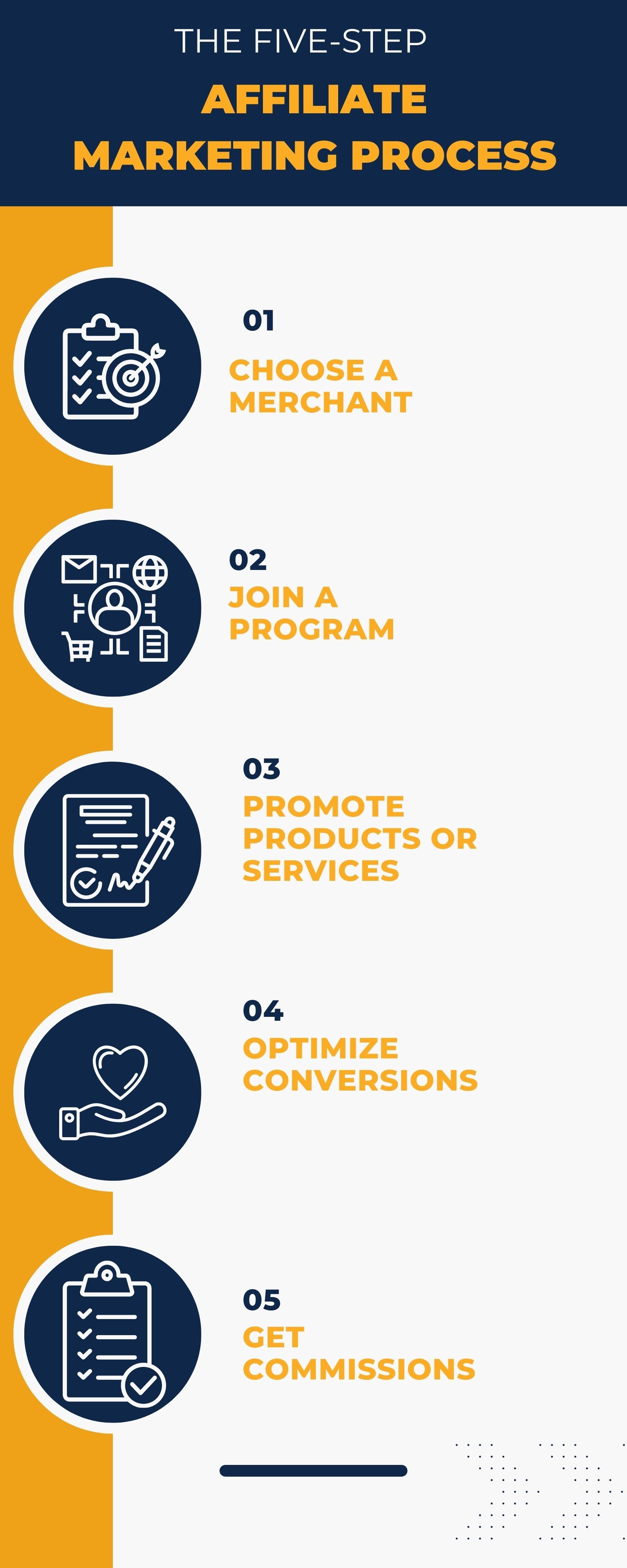For those who don’t know, affiliate marketing is a new and emerging niche that involves earning a commission by promoting another company’s goods or services. It is popular mainly due to its flexibility and profitability, even though it’s a big shift from conventional marketing. Affiliate marketing is anticipated to be valued at over $8 billion by 2022. It might also be the answer you are looking for, especially if you are trying to break into a million-dollar business.
What is affiliate marketing?
Simply put, affiliate marketing is when you endorse another company’s products or services and earn remuneration for the sales that you generate. Occasionally, these rates are fixed amounts, but most of the time, they are a percentage of the sales price. As an affiliate, you digitally market the goods on behalf of a merchant. Ultimately, the goal is to drive traffic to the merchant’s website and make way for conversions. The affiliate also gets paid for every conversion or click.
Tip: Find reputable affiliate programs in exchange for a substantial commission.
Affiliate Marketing – How Does It Work?
It is as easy as floating a website and promoting deals for companies and brands using various media, including videos, blogs, advertisements, reviews, and much more. Affiliates are paid on a predetermined schedule, typically during a PPC or Pay Per Click. But payments could also be dissipated when a customer makes a purchase, which is a CPA or Cost Per Acquisition. While the concept does sound straightforward, it could get pretty technical. Sometimes, even expert digital marketers are left bewildered. However, the merchant’s affiliate software runs the actual mechanics in the background.
Read also:-5 Effective Tips to Improve the ROI of Your Paid Search Campaigns
Here’s a quick look at what happens behind the scenes:
- First, the affiliate signs up for the merchant’s program. A unique ID and URL are provided to advertise the goods.
- The link is included in the affiliate’s blog post or sent to the consumer via an email marketing campaign. Visitors can then follow the link to learn more.
- When a visitor clicks on a link to visit your website, a cookie is installed on the visitor’s computer that identifies the affiliate. Cookies ensure that affiliates receive credit even if the sale is made weeks or days later.
- The merchant checks the sales record for a cookie identifying the referral’s source, whenever a purchaser completes the buying process.
- Reports are sent to the affiliate by the merchant with an overview of the clicks and sales.
- At the end of each revenue-sharing period, the merchant pays the affiliate an agreed commission amount

- Executing Affiliate Marketing Effectively
- Affiliate marketing is about consumers making smarter judgments because that’s precisely how you add value. You are using the digital space to systematize the thinking and purchasing process while enriching the customers’ decision-making.
- Step 1: Choose an affiliate product
- You can select a product you have direct access to and obtain a free sample or trial. Alternatively, get a product you have already used and are happy with the results. Ensure that these possess an affiliate program. However, in both these scenarios, research is imperative, involving identifying the right audience and ensuring that the product/service is a good fit.
- Step 2: Set yourself up to become an affiliate
- You could work directly with affiliate merchants or approach a third party who will set you up to become an affiliate. Apply, get approved, and provide the appropriate information to get paid for your sales efforts. The merchants, in turn, will provide you with an affiliate link attached to a unique ID.
- Step 3: Advertise the products
- Put your suggestions in front of an audience already seeking a solution. Keep it trustworthy and transparent. Draft promotional emails and run live webinars where possible. You can create banners or even place a resourceful blog about the product.
- Best Practices
- As mentioned before, transparency is the key to enchanting the right customers. For one, inform people that you stand to earn a small commission – make this a statement whenever you share an affiliate link, whether on a web page or a blog post. Besides, it is a regulatory requirement stipulated by the F.T.C or Federal Trade Commission.
- In the modern marketing landscape, affiliate marketing plays a significant role as a bridge between hard-to-reach sellers and consumers. The future of affiliate marketing is bright, and it is forecasted that it will continue to prosper and expand. The future will see revamped commission schemes, and earmarked niches will become increasingly important.













Add comment